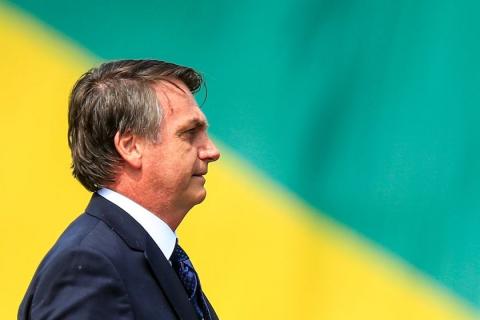How the new president’s government will affect the investment atmosphere in Brazil
more_resources

After a long period of political instability, it can be said that foreign investors want more than promises to put "new money" back into the Brazilian market. For this reason, with the presidential election results on October 28 and the consequent promise of renewal that this result represents, all eyes are on the initial measures of President-elect Jair Bolsonaro and his team, especially regarding the economy.
In his first official speech after the victory over Fernando Haddad from the Labor Party, Bolsonaro said almost everything the market wants to hear. He reaffirmed immediate priorities, such as reducing the public deficit and interrupting the path of debt increase and also signaled his commitment to reducing the state's weight in the Brazilian economy.
Very pragmatically aligned with the president Donald Trump, Bolsonaro will invest in bilateral agreements for specific problems in detriment of multilateral agreements based on economic blocks, such as the Mercosur and the European Union.
The new president brings the declared will to inject a more liberal air in the bureaucratic Brazilian economy. This, itself, has been perceived as a positive direction and received very enthusiastically by the business sector since what decreases enthusiasm for Brazil in terms of investment is the low growth of the economy. However, with the establishment of the newly proposed agenda, we can outline prospects for economic growth, which will automatically generate an impact on the stock price of companies and in the investment area as a whole.
Despite the crisis recently faced, Brazil will begin 2019 with controlled inflation, with the Selic rate at historically low levels, and a GDP with growth potential without generating inflationary pressures up to 3% per year, according to a study by BNDS (National Bank for Economic and Social Development).
Another factor that is also important and that appeals to the foreign investor is the declared commitment of the new government to reform the social security and the tax system. What is expected is that both measures will boost investor confidence, to impact long real interest rates down and make stocks more attractive.
According to the brokerage XP Investimentos, a reformist and liberal government can take the Exchange between 90,000 and 100,000 points by the end of the year, or 10% to 20% higher than current levels. Future interest rates should retreat to 7.5% to 8.5% per year for 2020 and to 10% by 2030. And the dollar may fall in the short term to the level of R $ 3.50 to R $ 3.70, "But we see the R $ 3.70 to R $ 4.00 as more appropriate, given the scenario of external risk." Still according to the brokerage firm, for this movement to be sustainable, the evolution of reforms is crucial. "If the reforms materialize during 2019, the Exchange could seek 125 thousand points by the end of next year," says XP.
Between the speech and the expectation, with the commitment to a liberal agenda and with a political ability to play the planned reforms, we will not only have the downsizing and the bureaucratization of the public machine but a true "tsumoney" - when many people are encouraged to migrate to the stock market, boosting the recent high market - waiting for the Brazilian market.
Wrote by Vanessa Trizzi.
